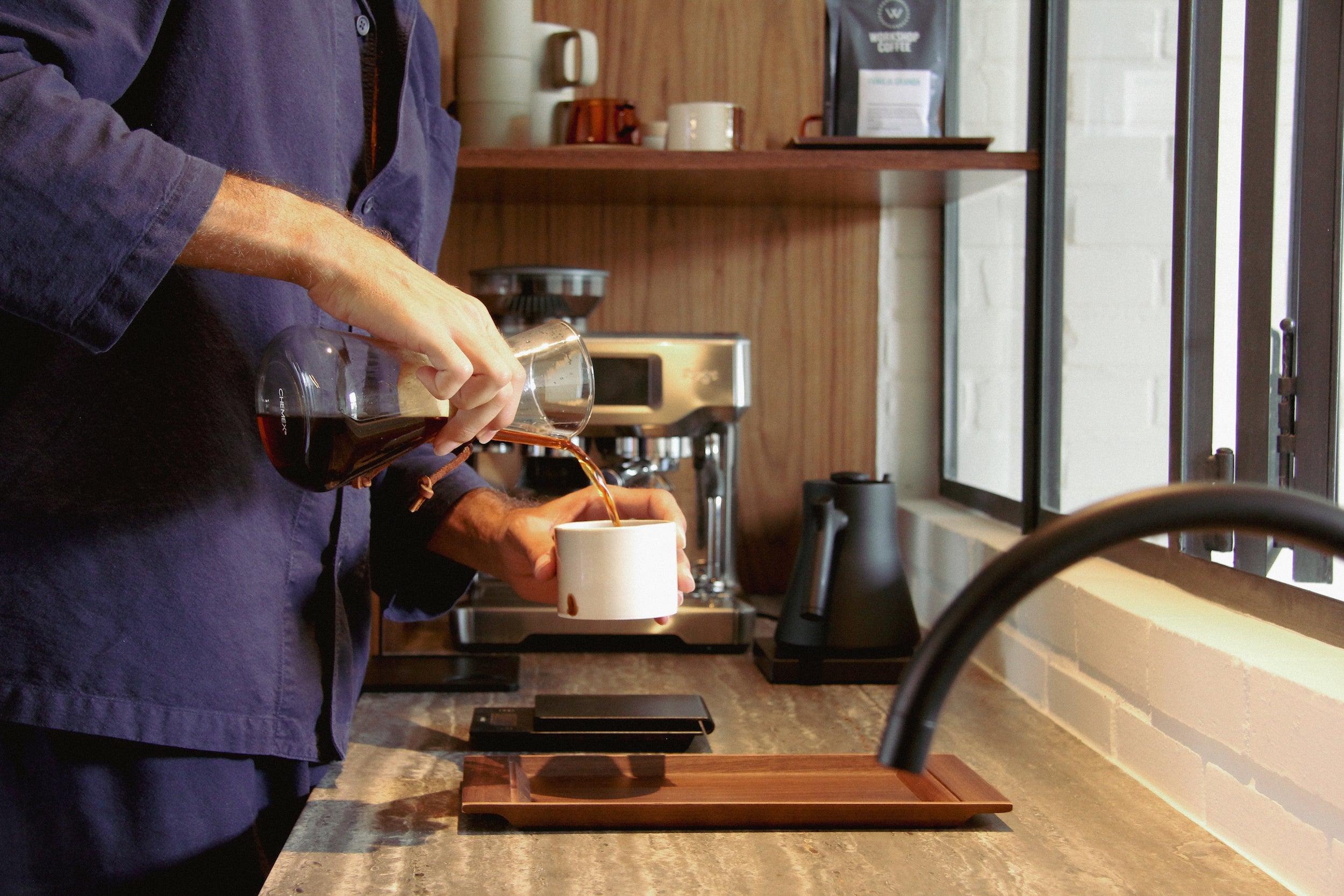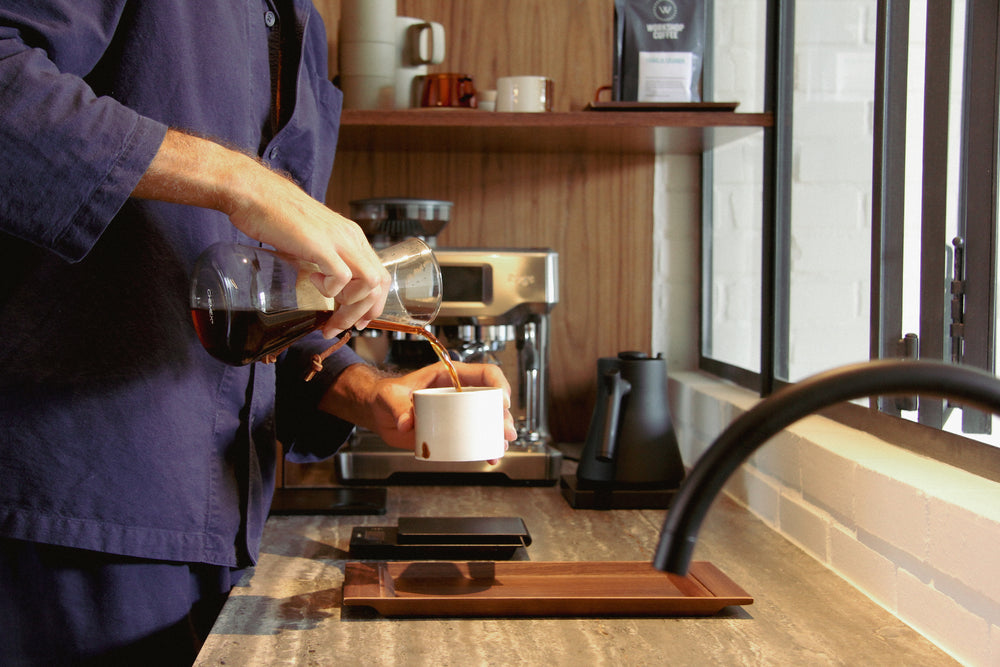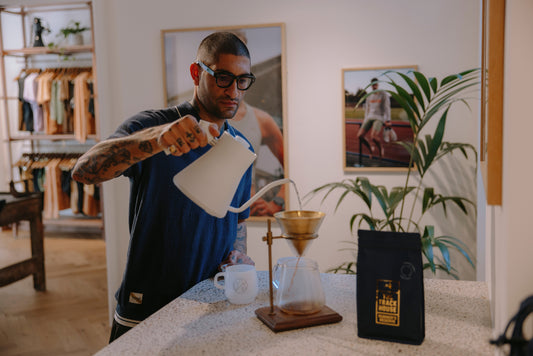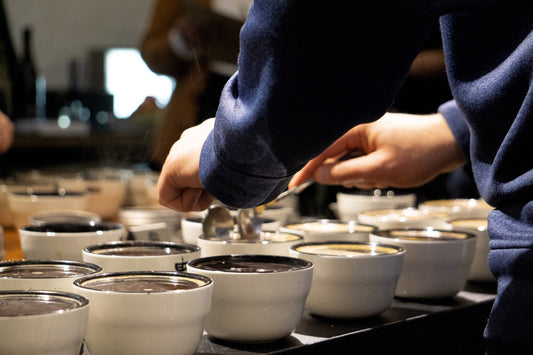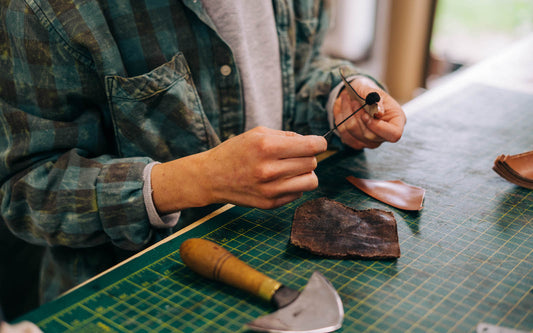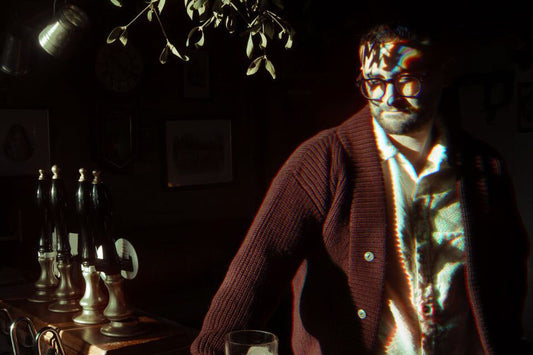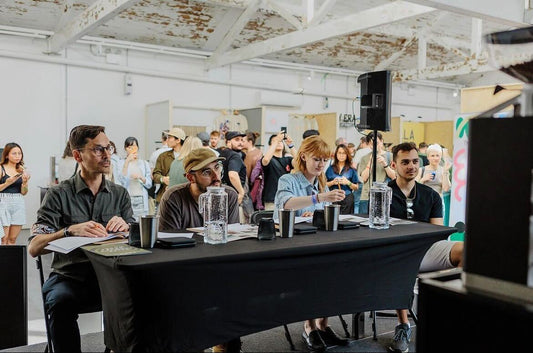 Intermittently sipping his cappuccino from a cup made by Portuguese ceramic studio Studio Jav, Rafael Oliveira smiles warmly from behind the screen. The cup, combined with the pristine, white-washed brick wall that serves as his backdrop, allude to his passion for cleanliness and simplicity in both his day job and his wider life.
Intermittently sipping his cappuccino from a cup made by Portuguese ceramic studio Studio Jav, Rafael Oliveira smiles warmly from behind the screen. The cup, combined with the pristine, white-washed brick wall that serves as his backdrop, allude to his passion for cleanliness and simplicity in both his day job and his wider life.
Having grown up in Portugal, it was here that Rafael studied film and photography at Instituto Politécnico do Porto before beginning a career in graphic design that has seen him working with companies based in Barcelona and more recently, Boston, which is home to performance running brand Tracksmith. Working from his newly built home in the city of Porto, he leads their creative output, overseeing everything, from their striking typography to their celebratory, and at times emotive, imagery.
“I didn’t necessarily follow what you’d call the normal path to get to this point. Graduating in film and photography, many of the skills that I use in my professional career today are self-taught. The software aspects, the graphic design – you know, the canons and rules – were not discovered by reading the right books and following a specific curriculum. Much of it has been found by trial and error, by making my way through it. And by finding my way through it, I’ve been fortunate enough to be able to get a lot of shit out of my system. That doesn’t mean I don’t still do shit work today – not at all! – but I feel I’ve been able to become better at learning how to do things a little bit better each time. And now I’m at this point where all of the elements that I was able to take control of have added up to get me here.”

“I learned at my own pace and chose to dedicate my time to learning about something that felt important to me, rather than it feeling prescribed, and that meant I was able to find my own rhythm and pace”.
As you’d expect from someone whose job it is to manage the way an entire company is perceived, the subject of control comes up frequently as we spend an hour talking and nursing our coffees in our respective time zones. It has negative connotations, bringing to mind micro-management and rigidity, but Oliveira is a staunch believer in it being a catalyst for creativity and a crucial ingredient in his pursuit of creating something better.
“So many things are out of our control, so for me it’s about controlling the things I can and not worrying about the other stuff. I like my furniture organised, my plates and dishes just so – I just like that there is a sense of order. If it looks okay to me, if it looks organised and uncluttered, it’s an achievement.”

And that creeps into all areas of your life?
“Of course. It’s a cliché, especially from a runner that works for a running brand, but I adopt a marathon mentality in so many of the things I do. You cannot expect to run well if you haven’t done the work. There’s no way! The distance will call you out. But at the same time, it’s not necessarily about crossing the finish line either. It’s about that commitment day in day out, tweaking things slightly and then seeing what the outcome of that is as you try and get a little bit better every week. Yes, it’s great to cross a finish line, but that moment is the result of that anonymous early morning run on a Tuesday, when nobody else was out there and you weren’t quite happy with the pace, but it doesn’t matter because you were out there running. They add up to allow you to get better and do what you want to do.

And it’s kind of the same with coffee, right? It demands engagement from you. You can go about and not care, using whatever amount of beans from whichever place and you still get a cup at the end of it. But is it good? It depends, and taste varies because different people like different things, but for me, I want to get it to a particular place by weighing out my coffee, tweaking and changing the temperature, folding the filter paper a certain way and seeing what impact it has.”
That’s not to say he’d describe himself as a conformist. “You need to know the rules before you can break them”, says Rafael. “You always need to start at the point of control and impose these sorts of restrictions to better understand the process and what they allow you to do, and what you like or don’t like about them. From there, you can decide what you need or want to change and create something that’s much more personal because they’ve been done by you and you alone. In that sense, they’re not replicable and provide a sense of enjoyment – at least for me”.

Having returned to Portugal and built a house with his wife in its coastal city of Porto, Rafael is no stranger to remote working. As a result, while many of us have followed suit, his day-to-day routines haven’t necessarily changed. However, their structure certainly has, with his daily schedule being bulked out with blocks of meetings and calls.
“My attention has become super fragmented and that’s been the hardest thing for me to adapt to over the last year or so. I’ve found myself with less time to spend with my own thoughts and coffee has presented me with a chance to relax, which I realise is kind of ironic – it’s associated with making you more alert and focused, but for me it kind of let’s me step out of a zone. I stand up from my desk and I walk into my kitchen in an entirely separate part of my house and I brew my coffee whilst looking back at my desk, take a step outside onto my patio, breathe in some fresh outside air and try as much as possible to stop and relax for a little bit.”
Has it been a boon over the last 18 months?
“The first thing I’d wake up thinking about is the pot of coffee I was going to brew and it was the first thing I did. With more time to try things and experiment at home, it’s definitely allowed me to discover what it takes to brew a cup of coffee, you know? Where does it come from? What does my favourite café do that I’m not doing? How can I make this better?
Until recently, there was absolute certainty in what I was going to brew because I only had my Chemex, but I’ve recently bought an espresso machine, so now I leave it to the day to decide”.

Is there a preference for one over the other?
“It completely depends. Sometimes I run early and, if I’m heading out on a longer run I like to do it on an empty stomach. So, I’ll just take a quick shot of espresso and I head out the door. If I’m leaving a little later in the day so I can get better weather or wait until it’s a touch warmer, I’ll probably indulge in a cappuccino with my breakfast and let a couple of hours pass.
That said, I love filter coffee – I think it’s great. It takes a little more time and I think it’s almost more engaging in a way. The Chemex, for instance – it’s a beautiful sculpture. Just looking at it and the orangey, rusty coffee liquid inside is beautiful.
It’s here that Oliveira’s passion for a combination of aesthetic and process – for form and function – becomes abundantly clear. There is, he concedes, a possibility he attaches more weight to the visual aspect of things than most, but he loves things that look good. Holding up his cup, he says:
“My eyes are the gateway to my brain. I know that there’s a lot of privilege that comes with saying this, but when you’re engaging and taking the time to use something I also believe it should be beautiful. It helps increase the experience, heightens the senses and makes everything that little bit better. It’s not just about what you consume, but how you consume it – it adds to the overall process.

“Of course the product is important too and I’ve more recently become more attentive to where my beans are from. Where does that come from, what does that do to the flavour? I’m seeking that out more and more, trying as much as possible to experiment and have fun – coffee needs to be fun”.
With our cups empty, we bring our conversation to an end not too far from where we started. As someone who self-admittedly likes to exercise control, what are the non-negotiables when it comes to Rafael’s daily routine?
As much as I love it, coffee doesn’t quite make the cut. I have, in the past, gone two months without a drop of it, so it’s a luxury – and a luxury I love – but not a necessity.
The only thing that’s really non-negotiable for me is running. It’s not just the physical aspect of it, it’s the mental element too. I know that I’m going to be able to think during that time, even if I’m doing super hard intervals where I need to be really focused on what I’m doing. It allows me to open up certain pathways in my brain and tohse have helped me in my personal life and also in my work, so that’s not going anywhere.
Share:


